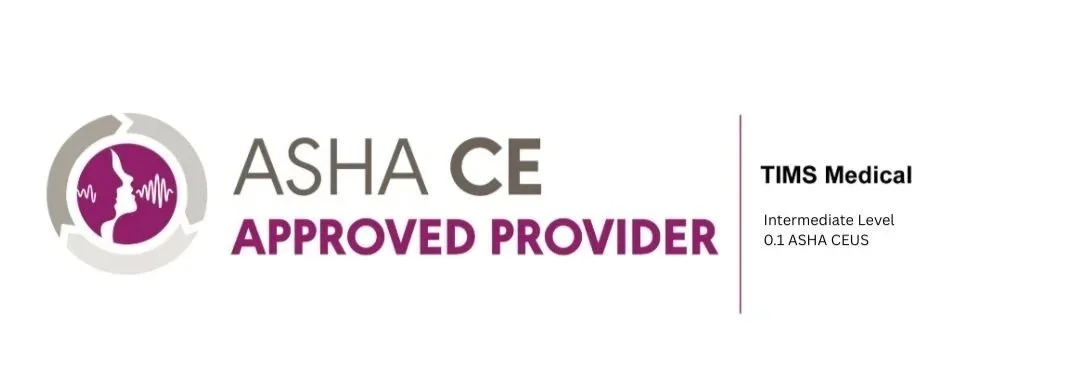
TIMS University Webinar
Beyond the Bolus: Redefining the Oral Phase as a Neural Driver in Swallow Rehabilitation
November 10, 2025 at 8:00 PM EST | 0.1 ASHA CEUS / 1 PDH
Course Instructor
Dr. Reva Barewal
Dr. Reva Barewal is a prosthodontist, clinical researcher, and founder of Savorease Therapeutic Foods, where she leads the development of texture-modified foods that support sensory-motor engagement in dysphagia. She serves as an Assistant Professor at Oregon Health & Science University in both the School of Dentistry and School of Medicine, and has over two decades of experience in oral rehabilitation for neurologic and medically complex patients.
Her translational research bridges oral physiology, food science, and neurorehabilitation, introducing the concept of functional texture design. Dr. Barewal’s current work focuses on redefining the oral phase as a neural driver in swallowing rehabilitation and advancing the emerging field of sensorial precision nutrition
Disclosures
Dr. Barewal is the founder of Savorease Therapeutic Foods, which develops texture-modified products designed for individuals with dysphagia. She receives compensation as a clinical consultant and speaker. Dr. Barewal serves as a voluntary member on IDDSI USTIRG board related to education.
Course Information
Description
This course highlights the oral phase of swallowing as an active neural driver, not just a preparatory step. Participants will explore the mouth-brain connection, including neural pathways such as the nucleus tractus solitarius (NTS) and nucleus ambiguus (NA), and learn how reduced oral sensory input can impair swallow efficiency. The presentation will offer evidence-based strategies for assessing oral-phase deficits and the use of sensory-rich textures and interventions to restore coordination and promote functional recovery.
Learning Outcomes
Explain the neurophysiological mechanisms linking oral sensory stimulation to cortical and brainstem activation during swallowing.
Discuss the impact of reduced oral-phase sensory input—such as through texture modification or prosthetic instability—on swallowing coordination and efficiency.
Identify clinical strategies that leverage oral-phase sensory engagement to enhance functional swallowing outcomes in rehabilitation.
Agenda
8:00 - 8:05 Introduction: Reframing the oral phase in dysphagia care
8:05 - 8:15 Neurophysiology of swallowing: cortical and brainstem interactions
8:15 - 8:25 Clinical implications of oral-phase sensory deprivation
8:25 - 8:40 Integrating oral sensory assessment and intervention principles
8:40 - 8:50 Emerging research: texture, structure, and sensory design in recovery
8:50 - 9:00 Discussion and Q&A
Satisfactory Course Completion Requirements
To successfully complete the course, participants must attend the entire live event and submit the post-course survey.



